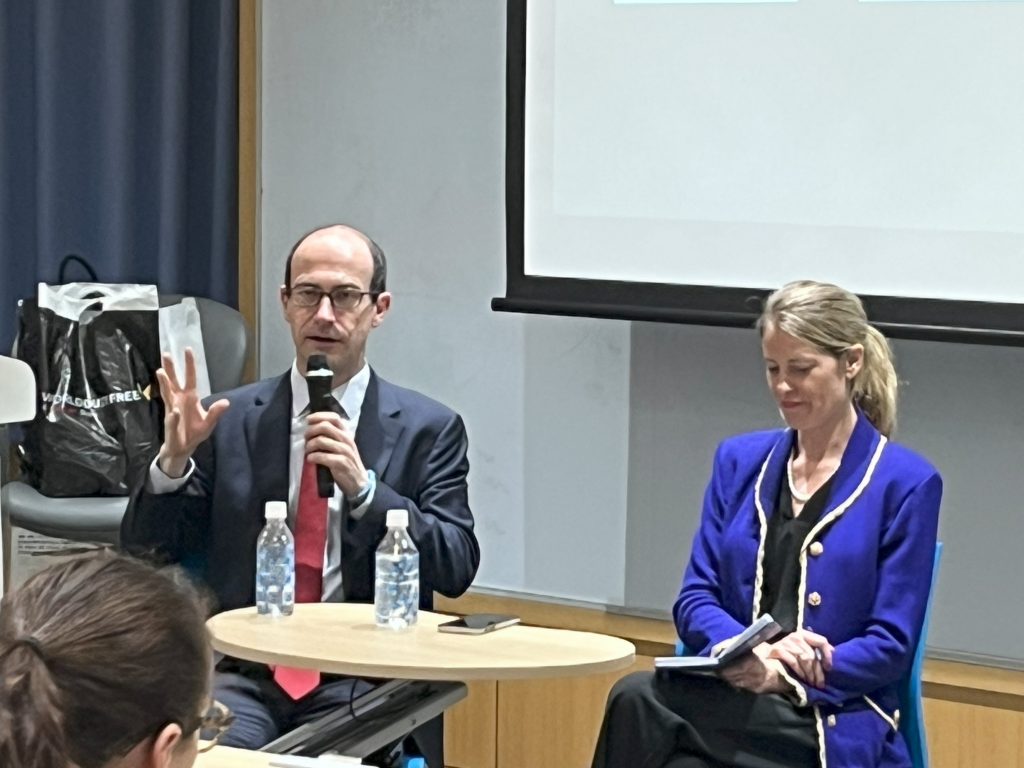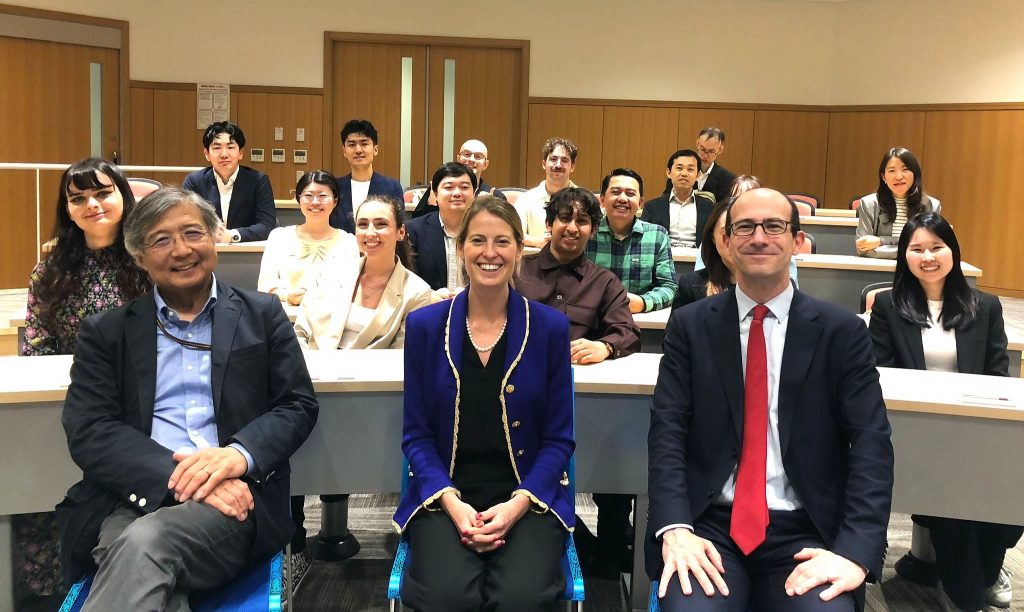On April 18, 2025, GraSPP hosted a research seminar, “Startup capitalism: New approaches to innovation strategies in East Asia,” with two speakers, Prof. Ramon Pacheco Pardo from King’s College London and Dr. Robyn Klingler-Vidra from King’s Business School. Prof. Chiyuki Aoi hosted the seminar, partnering with Prof. Toshiro Nishizawa from the UTokyo College of Design Planning and Coordination Office. A team of GraSPP student volunteers, Cynthia Solenn Pagliccia, Kunhee Kim, Lu Tian, Soo Yeon Yoo, and Wanonno Iqtyider, supported the seminar organization. GraSPP sincerely thanks Prof. Ramon Pacheco Pardo and Dr. Robyn Klingler-Vidra for their visit to share insightful views on public policy implications for innovation strategies in Japan.
Background and presentation summary
The last few decades have seen East Asian governments provide increasing support for startups—new, high-growth, technologically oriented firms. Yet such initiatives do not necessarily benefit startups’ growth as challengers to large, established firms. Rather, they often enable startups to function as boosters for these firms’ competitiveness. Startups, in short, are both disruptors and resources for big businesses.
Klingler-Vidra and Pacheco Pardo demonstrate this dual role by examining the evolution of startup-centric policies in Japan, South Korea, Taiwan, and China. They show that in the region, what they call startup capitalism—an economic and political system in which startups contribute to employment, innovation, and growth—can take multiple forms. Rich with empirical detail, Klingler-Vidra and Pacheco Pardo reveal how and why startups can work with—or even for—large firms to drive a country’s technological capabilities.
The seminar was organized as part of the book-launching activity for the authors to discuss the book with academics, policymakers, business leaders, startup founders, and journalists in Northeast Asia. They visited National Chengchi University, National Taiwan University, Academia Sinica, Taiwan, Seoul National University’s Institute of International Affairs, National Graduate Institute for Policy Studies (GRIPS), and GraSPP, among others.
See Startups play a growing role in national security—this was a key takeaway from the Japan leg of our book tour and Startup Capitalism: New Approaches to Innovation Strategies in East Asia.

Participant feedback
“Thank you for the thought-provoking and interactive session! The topic was interesting because it applied Schumpeter’s theory of innovation to the current East Asian countries. Economic security has been a buzzword, but social scientists have not paid enough attention to its societal impact. Economic security is part of the startup policies, but a lot of overlap, and exploring the phenomena from an economic theory, not political theory, is truly insightful. Furthermore, the fact that this session was open to the public signifies GraSPP’s contribution to sharing its academic knowledge with the public.”
“The opening dialogue with the lecturers fostered mutual understanding and made the lecture more engaging. Although I had limited prior knowledge of the startup industry, the lecturers provided detailed and accessible explanations. The post-lecture interaction session was also valuable, allowing students interested in the topic and professionals already working in related fields to exchange insights. This collaborative atmosphere deepened my understanding and built upon the lecture content effectively.”
“I should have read the book before attending the session, but the presentation was easy to understand without prior knowledge. The content was thought-provoking, and I was eager to review Schumpeter’s work, so I ended up borrowing books on political and economic theories. It was a good opportunity to revisit the basic but fundamental pieces of work.”


